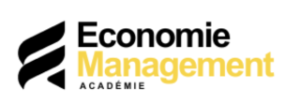Social media has become a powerful tool for businesses looking to enhance their human capital management strategies.
From recruitment activities to employee engagement and employer branding, social media platforms offer HR professionals a multitude of opportunities to revolutionize the way they communicate with and motivate their workforce.
As social media plays an increasingly important role in our daily lives, it is essential that HR teams leverage its potential to create a strong, engaged, and productive work environment.
Table de matières
Key Uses of Social Media in HR
Recruitment
- Social media has changed how candidates search for job opportunities, with 86% of job seekers using social media in their job search. HR professionals can leverage this by building a strong online presence to attract top talent.
- Identify the social platforms your target candidates frequent, such as LinkedIn for experienced hires or industry-specific platforms like GitHub for developers.
- Strengthen your presence by regularly publishing useful content, engaging with your followers, and posting job openings.
- Social media allows you to reach a wider audience, find passive candidates, and speed up the recruitment process.
Employer Branding
- Social media is a great way to showcase company culture and enhance your company’s image as an employer.
- Highlight your organization’s values, such as diversity and inclusion, in your job ads and content.
- Give candidates an insight into day-to-day life at your company by sharing behind-the-scenes content and employee testimonials.
- Simplify the application process and respond promptly to candidate inquiries to improve their experience.
Employee Engagement
- Social media platforms facilitate two-way communication, enabling HR to connect with employees and gather valuable insights.
- Share company news and updates to keep employees informed and involved.
- Encourage the sharing of pre-approved content and job openings within employees’ personal networks.
- Use social media to celebrate collective achievements and successes, boosting morale and engagement.
Training and Development
- Integrate social media into training programs to make them more interactive and engaging.
- Use polls and surveys to gather feedback and expectations from employees.
- Introduce trainers and showcase their experience via social media to build enthusiasm and trust.
- Encourage collaboration and knowledge-sharing among employees through social media groups.
Creating a Positive Work Environment
- Social media platforms enable HR to define and communicate the company’s brand and culture.
- Share visual content and employee testimonials to motivate teams to embrace core values.
- Tools like Workplace by Facebook, Yammer, or Slack promote internal sharing, collaboration, and problem-solving, creating a sense of belonging.
Strategies for Effective Use of Social Media in HR
Choosing the Right Platforms
- Understand the demographics of your workforce (age, gender, cultural background, etc.) to select appropriate platforms.
- Evaluate communication needs and frequency. Prefer Yammer or Slack for regular communications, and Twitter or Facebook for sporadic announcements.
- Opt for platforms offering advanced privacy and security features to protect sensitive HR data.
Developing a Social Media Policy
- Implement clear guidelines on expected online behavior to protect employee privacy and the company’s reputation.
- Address the sharing of confidential information, provide guidelines on personal and professional usage, and outline expectations for representing the company.
Brand Consistency and Authenticity
- Ensure that branding and company values are consistent across all social platforms.
- Use a common visual identity (logo, color palette, images, etc.) to create a recognizable presence.
- Create content that reflects the values and tone of your employer brand to build trust.
Interaction and Responsiveness
- Foster a culture of open communication by promptly responding to employees’ comments, questions, and concerns.
- Invite employees to take over social media accounts to share their work experiences and make content more authentic.
Analysis and Adaptation
- Regularly review analytics to understand what content resonates with your audience and adjust your strategy accordingly.
- Stay up-to-date with new features and emerging platforms to integrate them when needed.
Conclusion
Social media provides HR professionals with a range of opportunities to enhance their recruitment efforts, increase employee engagement, and build a strong employer image. By strategically choosing and utilizing social platforms, HR leaders can contribute to creating a positive, engaging, and productive work environment.
FAQ
Q: How can social media assist in recruitment?
A: Social media provides access to a larger talent pool, including passive candidates. By establishing a strong presence and posting job openings, you can directly attract candidates and speed up the recruitment process.
Q: What are the benefits of social media for the company’s image?
A: Social media allows you to showcase your company culture and make it an attractive place for candidates. You can highlight employee experiences and simplify the job application process, thereby enhancing the overall candidate experience.
Q: How can social media be used to motivate and reward employees?
A: Social media facilitates two-way communication, enabling HR to share company successes and updates. It provides a way to publicly recognize employees’ achievements, increasing their motivation and creating a sense of belonging.
Q: What are the potential risks associated with using social media in HR?
A: HR professionals must be aware of security risks, data breaches, and the disclosure of confidential information. Additionally, employees’ personal posts can impact the company’s image, emphasizing the need for a clear policy.
Q: How can HR measure the success of their social media campaigns?
A: Define key performance indicators (KPIs) such as increased website traffic, improved candidate quality, or employee retention. Utilize analytics tools to track and evaluate these metrics, and adjust your strategy based on the insights gained.




